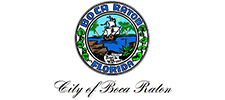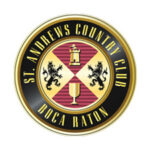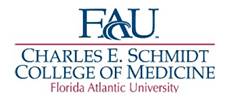Broken Sound Club’s (BSC) achievements and club industry leadership role in advocating for community and golf course sustainability were ‘center stage’ at the August Joint Hazardous Waste and Materials Management Training Conference in Long Beach, California. With more than 250 state and territorial solid waste managers, Environmental Protection Agency (EPA) staff members and industry experts in attendance, BSC Golf Course Maintenance Director and Environmental Consultant Shannon Easter shared how the Club that established the first industrial composting project in Florida continues to ‘naturally’ save lives and dollars while improving the quality of life and healthfulness of those who live, work and play within its community. Its innovation and environmental stewardship saves countless birds and other wildlife on its Audubon Sanctuary and CEO Certified golf courses, while responsibly reducing landfill disposal and minimizing the adverse affects fertilizer and other chemicals on golfers and residents.
Impressed with its strides as a model in sustainability for other communities throughout the country’s 50 states and territories, the Association of State and Territorial Solid Waste Management Officials (ASTSWMO) — works closely with the national Environmental Protection Agency (EPA) — tapped BSC to present the features, advantages and benefits of its composting of food and green space waste through its investment in anaerobic digestion. During the session, BSC’s Easter was in good company, joined by a retail grocer utilizing anaerobic digestion, a commercial-scale anaerobic digestion facility and US EPA technical anaerobic digestion staff.
“This was an opportunity for Broken Sound Club to be recognized in a national forum for its excellent recycling program and to assist its professional peers,” noted John L. Price, a member of the ASTSWMO Sustainable Materials Management Task Force and Environmental Consultant, Waste Reduction MS 4555 for the Florida Department of Environmental Protection (FDEP) who extended the invitation to Broken Sound Club. According to Price, the ASTSWMO, through its resources and national training sessions, works to ensure that state and territorial solid waste managers are briefed on the most current developments related to their programs and coordinate the work of State regulators – such as the FDEP – with that of their federal counterparts. Its mission is to enhance and promote effective state and territorial programs and to affect relevant national policies for waste and materials management, environmentally sustainable practices and environmental restoration.
Commitment Plus Vision Equals Significant Advantages And Benefits
During his conference session, Easter shared how BSC’s commitment and vision resulted in a return on investment in just five years as its equipment and operations delivered a net budget savings of $70,600 per year in disposal refuse, commercial chemical fertilizer, mulch and pesticides and chemicals with a five-year average of $353,000. He demonstrated how the savings have been re-invested for lifestyle enhancement and future sustainability programs and a healthy environment for members, employees and flora and fauna.
Knowing that 3,000 members are being served 170,000 meals annually and 55,000 rounds of golf are played on 250 acres of maintained golf course that yield 500,000 lbs. of annual average of food waste and 1.2 million lbs. of annual average of yard waste, John Crean, CCE, BSC General Manager and Chief Operating Officer reported that BSC’s forward-thinking leadership recognized early the immediate and long-term benefits of sustainability best practices.
“Making sustainability a priority for more than a decade, our club members and staff were pleased to be acknowledged by the ASTSWMO and the EPA as a steward of green with the invitation to participate in this opportunity,” continued Crean who reported that the Club’s best practices in recycling has resulted in a consistent state record-setting 95% rate in the commercial sector. “Such acknowledgement is a great source of pride for our members knowing their Club continues to lead regional, national and global club/community model and advocate in this effort.”
Crean reported that BSC began its sustainability efforts on its greens with reclaiming water and adding birdhouses, a butterfly garden and true native areas on its golf courses. Looking internally at facility operations, BSC moved to paperless accounting, cardboard and paper recycling and installing of water reduction toilets, shower heads, motion sensor lighting systems with LED fixtures and bulbs, and replacing Styrofoam cups with biodegradable products made of corn starch before its large investment in composting. Most recently, BSC became the first club community to install
a Tesla charging station and employ a beekeeper to install and maintain 14 beehives on its
two golf courses.
Forward-Thinking Leadership Garners Impressive Accolades In Sustainability
For its best practices, BSC has received honors from the Florida Department of Environmental Protection for its impressive recycling rate that is consistently three times the statewide recycling rate for the commercial sector and was a Green Corporate Citizen award finalist at the department’s 2012 Corporate Recycling and Waste Conference. Most recently, the Club was awarded LEEDs certification for its Moonstone Spa & Fitness Center following its securing of a ‘Healthiest Club Designation’ from Prevo Health Solutions.
Recognizing its golf course-focused sustainability best practices, BSC was the second golf facility in
the U.S. and 14th in the world to be GEO Certified, the sustainability assurance of the Golf
Environment Organization, an international non-profit dedicated to supporting sustainability in the
sport of golf. According to Jonathan Smith, the Scotland-based CEO of GEO, BSC’s “vision,
commitment and teamwork have reduced resource consumption as they gradually naturalize the golf courses. Their flagship composting and water treatment projects have tremendous added benefits
for the club and the local community and demonstrate both innovation and determination to make a significant difference.”
Its two golf courses have also been awarded coveted Audubon Sanctuary certifications. According to Easter, golfers — on any given day — get a glimpse of a variety of endangered and protected birds. Recent sightings include the Red Crowned Parrot from Mexico (75 to 100 of them last year were
spotted on The Old Course over a couple of weeks); Western Spindalis (Part of the Tanager Family); Ruby Throated Hummingbirds; and Bananaquits (adult male) to the majestic American Bald Eagle. New birdhouses have been included to bring in species of birds that are not but should be
in the area, such as the Painted Bunting.
Broken Sound Club is located at 2401 Willow Springs Drive, Boca Raton, FL. For more information
on Broken Sound Club’s sustainability initiatives, contact Shannon Easter at 561-241-6800.
































































